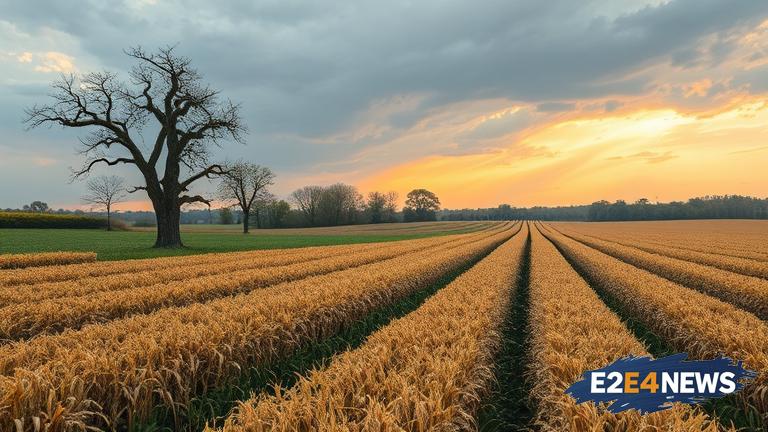Southern Indiana farmers are facing a challenging time due to the recent unpredictable weather patterns. The region has experienced a mix of heavy rainfall, drought, and extreme temperature fluctuations, making it difficult for farmers to plan and manage their crops. The unpredictable weather has resulted in delayed planting, reduced crop yields, and increased risk of crop diseases. Many farmers are concerned about the impact of the weather on their livelihoods and the local economy. The weather patterns have been particularly harsh on corn and soybean crops, which are the mainstay of the region’s agricultural industry. Farmers are having to adapt to the changing weather conditions by using new techniques and technologies to mitigate the effects of the weather. However, the cost of implementing these measures is high, and many farmers are struggling to make ends meet. The situation is further complicated by the fact that the weather patterns are becoming increasingly unpredictable, making it difficult for farmers to plan for the future. The Indiana Farm Bureau has reported that the state’s agricultural industry is facing significant losses due to the weather. The organization is calling on the government to provide support to farmers and to implement policies that will help to mitigate the effects of climate change. In the meantime, farmers are having to rely on their own resources and ingenuity to cope with the challenges posed by the weather. The community is coming together to support the farmers, with many local businesses and organizations offering assistance and advice. Despite the challenges, many farmers remain optimistic about the future and are determined to find ways to adapt to the changing weather patterns. The situation in Southern Indiana is a microcosm of the broader challenges facing the agricultural industry in the United States, where climate change is having a significant impact on crop yields and farm incomes. As the weather patterns continue to evolve, it is likely that farmers will have to become increasingly resilient and adaptable in order to survive. The use of technology, such as precision agriculture and climate modeling, is likely to play a key role in helping farmers to cope with the challenges posed by the weather. In addition, there may be a need for policymakers to implement new policies and programs to support farmers and to help them to adapt to the changing climate. Overall, the situation in Southern Indiana highlights the need for a coordinated and sustained effort to address the challenges posed by climate change and to support the agricultural industry.
